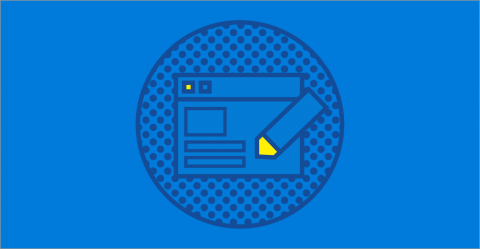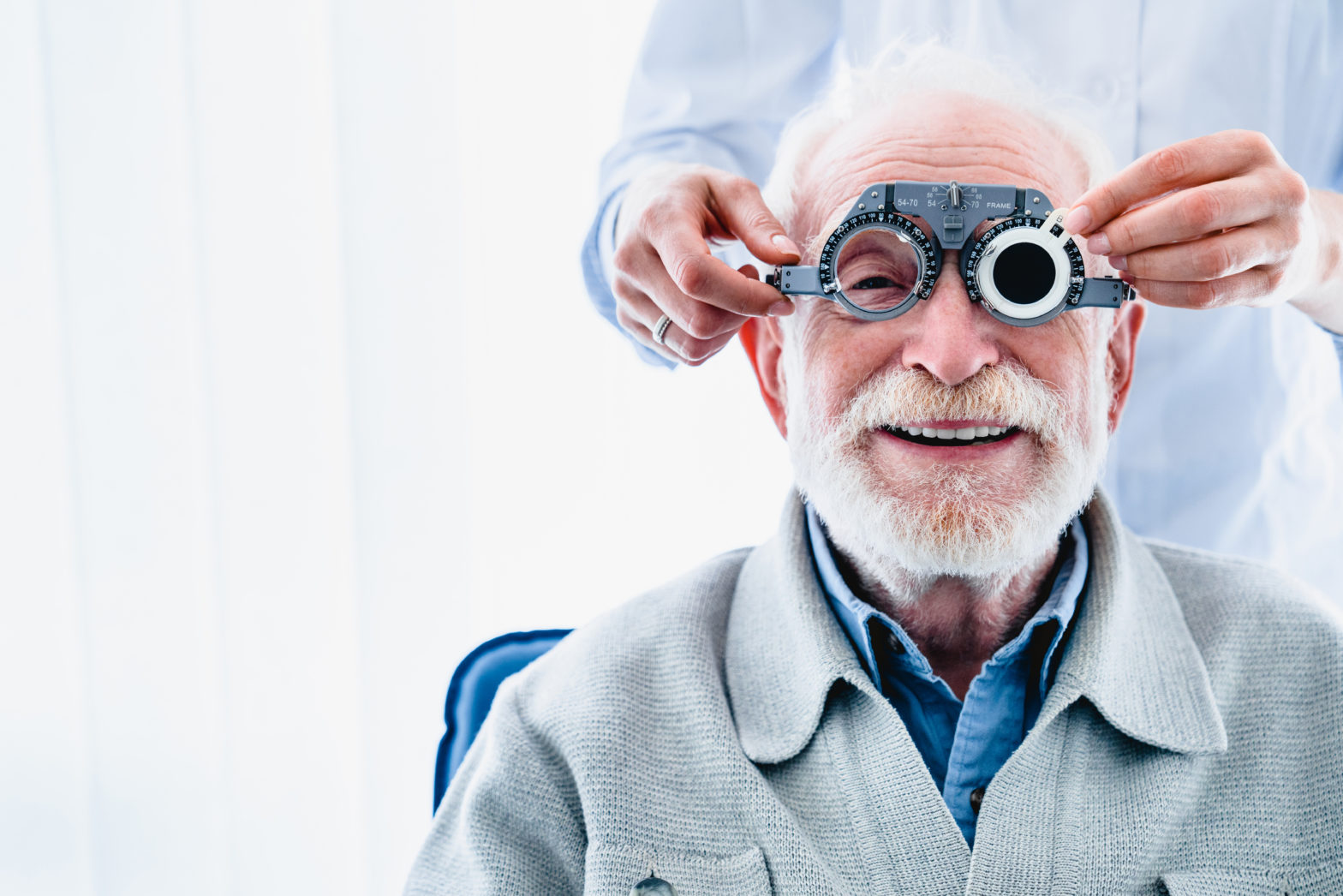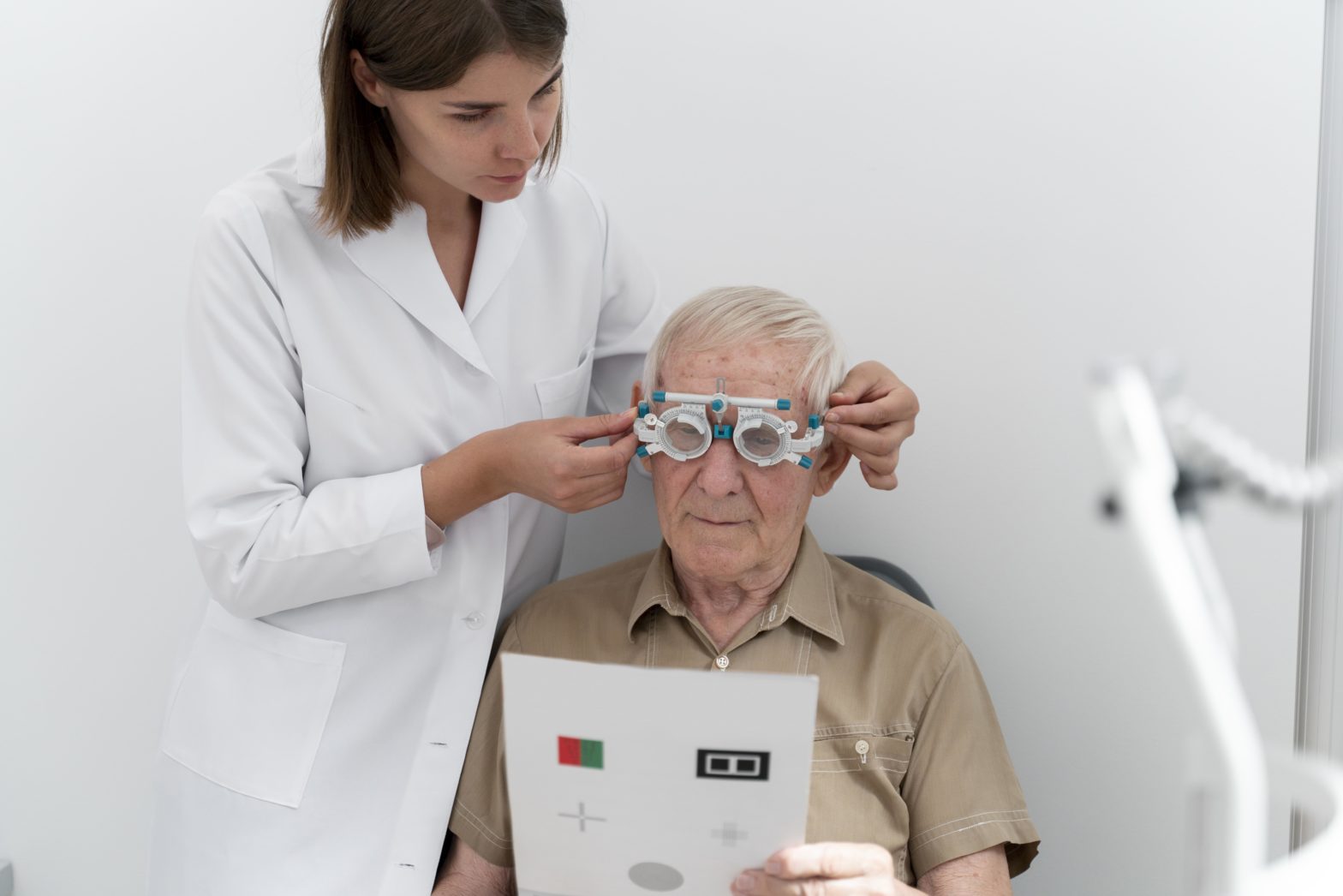Our eyes are not only windows to the soul; they also reflect our general health. Unlike other organs, the eye permits us direct observation of blood arteries that connect to our cardiovascular and nervous systems. A routine eye exam not only aids in the detection and treatment of eye disorders, but it can also disclose symptoms of life-threatening conditions such as severe hypertension, diabetes, renal disease, thyroid troubles, brain tumours, aneurysms, infections such as tuberculosis and AIDS, and some autoimmune diseases.
According to the National Blindness & Visual Impairment Survey 2015-2019, 92.9% of blindness among people over the age of 50 is preventable. Yearly eye exams and prompt treatment can lower blindness rates while also ensuring good eyesight and quality of life into old age.
Eye tests start at birth. Newborns’ exterior ocular structures are checked, including eyelid position, eyeball structure, and light responsiveness. Premature babies or those with low birth weight should be screened for Retinopathy of Prematurity (ROP) by a trained expert within a month of birth if they received neonatal care.
PRESCHOOL-AGE KIDS
They should have an eye examination, especially if there is a family history of visual issues. School screenings are critical for identifying and correcting refractive defects, which are a leading cause of vision issues and lazy eye (amblyopia) if not treated promptly.
BETWEEN 20-40 YEARS OF AGE
Individuals who use glasses, have a family history of eye disease, have had previous eye injuries, or have chronic health concerns should have an annual eye checkup. Symptoms such as eye tiredness, burning, fuzzy vision, headache, redness, or pain necessitate a visit to an eye doctor.
POST 40 YEARS OF AGE
After the age of 40, a full eye checkup every two years is necessary owing to presbyopia, which necessitates near-vision correction for tasks such as computer work and reading.
ANNUAL CHECK-UPs CRUCIAL AFTER AGE 50
Many eye illnesses, such as age-related macular degeneration (AMD), diabetic retinopathy, glaucoma, and cataracts, occur at this age with no visible signs. Floaters or blurry vision should prompt a thorough eye examination to rule out concerns such as retinal detachment or bleeding caused by high blood pressure, high cholesterol, infection, or inflammatory illnesses. You should have a full eye exam every 1-2 years.
Retina exams performed during routine check-ups can reveal aberrant blood vessel characteristics associated with uncontrolled high blood pressure, cholesterol, and cardiovascular disease. AI-based retinal imaging is making cardiovascular health screening more accessible and cost-effective.
What to Expect During an Eye Exam?
A comprehensive eye exam often consists of numerous components:
-
Patient History
The eye care professional will ask about your medical history, any drugs you are currently taking, and any special visual difficulties you may have.
-
Visual Acuity Test
This test uses an eye chart to determine how well you can see at different distances.
-
Refraction Assessment
This examination provides the proper prescription for corrective lenses, if necessary.
-
Eye Health Evaluation
The health of the eye’s exterior and internal structures will be evaluated utilizing specialist tools.
This could involve tests for glaucoma, cataracts, macular degeneration, and diabetic retinopathy.
-
Additional Testing
Additional tests, such as pupil dilation, visual field testing, or imaging tests, may be undertaken according to the results and the particular circumstances.
Prioritizing frequent eye examinations protects our vision and ensures excellent eye health for years to come. Schedule your next eye checkup today to give yourself the gift of clear vision and good health.
What are the additional factors that can influence the frequency of eye exams?
-
Digital Eye Strain
With the increased use of digital gadgets in our daily lives, many people are experiencing symptoms of digital eye strain such as dryness, discomfort, and blurry vision. Regular eye exams can help detect these difficulties early on and make recommendations for decreasing digital eye strain, such as lowering screen settings, taking breaks, or wearing specialized glasses.
-
Occupational hazards
Certain activities may expose people to eye dangers like dust, chemicals, or bright lights. People working in industries such as construction, manufacturing, or healthcare may need more frequent eye exams to check and safeguard their vision from occupational hazards.
-
Systemic Health Conditions
Diabetes, hypertension, and autoimmune illnesses are all systemic health issues that might have an impact on eyesight. Individuals with these disorders should get regular eye exams because they are more likely to develop ocular issues. Early detection and therapy of such disorders can assist to prevent vision loss and improve overall health.
-
Medication Side Effects
Some drugs may cause adverse effects that impair eyesight or eye health. Individuals who take drugs that have been shown to have an effect on the eyes should have regular eye exams to check for potential side effects and ensure early intervention if necessary.
-
Lifestyle factors
Certain lifestyle choices, such as smoking, excessive alcohol consumption, and poor diet, might raise the risk of eye illnesses such as macular degeneration and cataracts. Regular eye checkups, together with lifestyle changes, can help reduce these risks and support good eye health.
-
Family history
A family history of eye disorders or conditions might have a major impact on the frequency of eye examinations. Individuals with a family history of glaucoma, macular degeneration, or retinal detachment may require more frequent examinations to detect early signs of these illnesses.
-
Vision Changes
Even if you have no known risk factors or pre-existing disorders, changes in vision should cause you to see an eye care specialist. Whether it’s sudden blurriness, difficulties seeing at night, or other visual problems, addressing these changes early on with frequent eye exams can help detect underlying concerns and avoid further deterioration.
Incorporating these additional criteria into the discussion underscores the necessity of personalised eye care and the different factors that might affect the frequency of eye exams for people of diverse ages and lifestyles. Individuals who prioritise regular eye exams and examine these issues can take proactive efforts to maintain good eye health and retain their eyesight for years to come.
Regular eye exams are vital for maintaining both good eyesight and overall health. Many disorders can be easily treated or managed if eye problems are detected early on, avoiding potential vision loss and maintaining quality of life. Remember that your eyes require the same amount of care and attention as the rest of your body. Make it a priority to arrange frequent complete eye exams so you can view the world with clear, healthy eyes.








